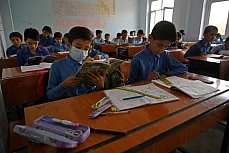Indore (Madhya Pradesh): Why Helicobacter pylori (H pylori) infected gastric patients suffered from compromised immunity? A study by the Indian Institute of Technology has revealed it all.
Helicobacter pylori bacterium is associated with chronic inflammation in the stomach area. Moreover, it is involved in ulcers, which can further develop into gastric cancer. The study at IIT Indore demonstrated the involvement of HomA and HomB, outer membrane proteins (OMPs) of Helicobacter pylori, in the modulation of immune cell functioning. Here, the molecular mechanism of B-cells immune suppression due to these outer membrane proteins from Helicobacter pylori was illustrated. The recent studies have been published in research journals ‘Nature Scientific Reports’ and ‘Molecular Immunology’.
The study was conducted by the Molecular Immunology group, led by Dr Prashant Kodgire, in collaboration with Dr Amit Kumar, both faculties at IIT Indore and Dr Ravindra Makde, scientist at RRCAT Indore.
Our immune system can be broadly classified as innate, humoral and cellular immune players, where different cells independently play a vital role. Additionally, these immune cells together demonstrate a synergetic role via communicating with each other. This B-cell and T-cell communication are very crucial for immune system activation and proper function, which finally assists in neutralization and killing harmful pathogens. Generation of antibody diversity and their production are specifically confined to B-cells. Production of specific high-affinity antibodies from less specific antibodies is carried out in B-cells, via a process called Class Switch Recombination, where a mutator enzyme activation-induced cytidine deaminase (AID) plays a key role.
The recent studies at IIT Indore revealed that interaction of outer membrane proteins HomA and HomB with B-cells transiently downregulates the expression of crucial enzyme AID and Ig switch germline transcription. Downregulation of AID leads to impairment of class switch recombination, resulting in significantly reduced antibody diversity. Besides, the researchers examined the immune-suppressive response of B-cells and observed that the cells stimulated with HomA/B show upregulation in the levels of T-cell inhibition markers. Thus, in addition to reducing antibody diversity, OMPs of Helicobacter pylori also inhibit the T-cell activation.
These studies suggest the potential role of OMPs in evading the host immune response. The study provides a better understanding of H. pylori pathogenesis and provides novel targets for therapy. This study is funded by the Indian Council of Medical Research (ICMR) and the Science and Engineering Research Board, Department of Science and Technology (DST), Govt of India.







